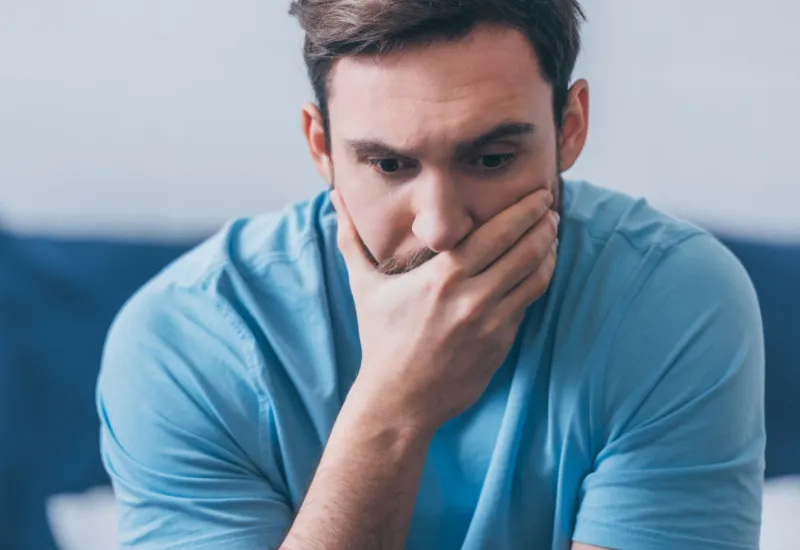Mental health is more relevant today than it has ever been. This is partly because of COVID'19 forcing everyone to stay inside their homes. Social isolation has made people who have never struggled with their mental health before experience mental health issues for the first time in their lives. Experiencing mental health issues for the first time can be terrifying if the individual is not educated enough about it. It is completely normal to experience short-term changes in mood as a response to the struggles of life. The trouble arises when these fluctuations have no apparent reason.
Anxiety and depression are among the most commonly-found mental health illnesses globally. However, the two are often confused as the same problem. The reason for the mix-up is the fact that most people with depression also experience anxiety. Following is a short guide to help you understand how these two are different:
Depression
Major depressive disorder, more commonly known as depression, is a mood disorder. It is an illness that affects its patients to the point where their life spirals out of control. Depression has a total of 264 million patients globally. If left untreated, depression, in its final form, can lead to suicidal tendencies. Suicide is known as being the second most common cause of death in individuals aged 15 to 29. An estimated 800,000 people every year lose their lives to suicide.
What does depression feel like?
Now that you are aware of what depression is, let us discuss its symptoms. Everyone experiences depression in their unique way and at a different intensity than others. If you have trouble recognizing these symptoms by yourself, you can book an appointment with a professional using platforms such as Cura4U. Generalizing symptoms of depression is not an easy task, but the most common signs of depression include:
- Persistent feeling of emptiness and hopelessness: Patients are unable to explain why they feel this way; it is as if these feelings arise out of thin air.
- Overeating and undereating: People with depression experience fluctuations in their weight, as they are highly susceptible to developing eating disorders due to low self-esteem.
- Disturbed sleeping pattern: Patients will often sleep the whole day or not at all. Insomnia is a common complaint from people with depression.
- Fatigue and lack of energy: Getting up from bed seems like a chore for depressed individuals. Even with 12+ hours of sleep, people with severe depression struggle to get up.
- Difficulty focusing: School or work gets harder to keep up with as depression progresses.
- Troubled relationships with loved ones: Due to bursts of anger and frustration, people with depression tend to push loved ones away.
- Anhedonia: Anhedonia tends to take the joy out of everything you once enjoyed. This includes anything from your past hobbies, social interactions, eating, or even sex.
- Drug abuse: Depression leads to people turning to drugs in an attempt to self-medicate.
Anxiety
In controllable levels, anxiety is your body's natural response when put in a stressful or dangerous scenario. However, things can get out of control if you feel it too intensely without being in any such situation. In an anxiety disorder, these feelings of fear can last for days.
Types of anxiety disorders
- Generalized anxiety disorder (GAD): Around 3.8% of the US population suffers from GAD. Patients of GAD often must deal with chronic anxiety that has no root cause. It can be about a wide range of things such as work or school.
- Post-traumatic stress disorder: This disorder is triggered by a terrifying past event that may lead to extreme anxiety and uncontrolled thoughts regarding it.
- Social anxiety disorder: Also termed as social phobia, social anxiety disorder is the intense feeling of discomfort in social situations. It has the potential to affect the relationships of the person suffering from it severely.
- Obsessive-compulsive disorder: OCD is characterized by recurring, obtrusive thoughts. Patients of this type of anxiety must often repeat daily tasks several times to cope.
- Panic disorder: People living with panic disorder feel intense fear, which may cause severe physical symptoms such as chest pain and dizziness.
What does anxiety feel like?
Like depression, extreme cases of anxiety can decrease one's quality of life substantially, making tasks such as leaving the house seem like a burden. The following are a few symptoms:
- Restlessness
- Shortness of breath: You could be resting on a chair, yet still be out of breath.
- An increased heart rate for hours
- Headaches, sweatiness, and dizziness
- Panic attacks: In extreme cases, patients of anxiety can experience many panic attacks in a short period, which can be very debilitating.
Organizations such as Cura4U make getting treatment for mental disorders like depression and anxiety more convenient today than it has ever been. Due to the social stigma attached to seeking help for mental disorders, many individuals never try seeking treatment for it. Cura4U allows patients to book appointments with doctors from the privacy of their homes using their devices. Register now and book your first appointment today!












